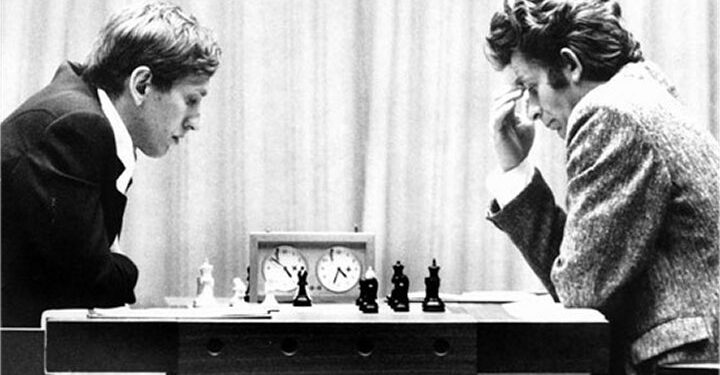On this day in 1972, American grandmaster Bobby Fischer defeated Boris Spassky of the Soviet Union in Reykjavik to claim the title of world chess champion, becoming the first native-born American to do so. The victory marked a turning point in the history of the game and carried powerful symbolic weight at the height of the Cold War.
A Cold War battle of minds
The World Chess Championship match, held in Iceland, was far more than a contest of intellect and strategy. It was widely perceived as a clash between East and West, with Fischer representing the United States and Spassky defending the Soviet Union’s long-standing dominance of international chess. The Soviets had held the world title since 1948, and chess was seen as an expression of their cultural and intellectual superiority.
Fischer’s remarkable rise
Fischer, a child prodigy from Brooklyn, had built a reputation as both a genius and an eccentric. By 1972, he was the world’s top-ranked player, known for his aggressive style, relentless focus, and uncompromising demands. Against Spassky, he staged a dramatic comeback after forfeiting the second game, winning seven of the next nineteen games and ultimately securing victory with a score of 12.5 to 8.5.
Cultural and political significance
Fischer’s triumph reverberated far beyond the chessboard. In the United States, his victory was celebrated as a symbolic win over the Soviet Union during a period of intense geopolitical rivalry. For the Soviet establishment, losing the crown in chess — a discipline in which they had invested heavily — was a psychological blow. The match drew unprecedented global attention, with millions following every move through newspapers, radio, and television.
Legacy of the 1972 championship
The Fischer-Spassky encounter is often referred to as the “Match of the Century.” It not only elevated chess to a new level of public interest but also established Fischer as one of the greatest players in history. His reign, however, was short-lived; Fischer refused to defend his title in 1975, leading to his forfeiture of the crown. Yet his influence on the game, from opening theory to professional standards, remains enduring.
Enduring fascination
More than five decades later, the 1972 world championship continues to be remembered as a defining moment in both chess and Cold War history. It demonstrated how a board game could capture the imagination of the world and symbolise much larger struggles between rival ideologies.
Newshub Editorial in North America – 2025-10-01




Recent Comments